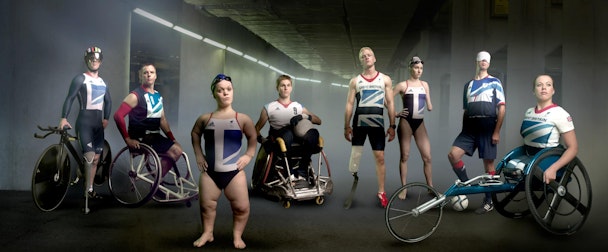Media cautioned over use of 'superhuman', 'brave' and 'heroes' in Paralympics reporting
Media outlets and journalists have been cautioned against the use of certain words when reporting on the Paralympic Games after a disability research report revealed that a number of commonly used terms including “superhuman”, “brave” and “heroes” could offend disabled people.

Paralympics
With the Rio 2016 Paralympics Games getting underway in two days the English Federation of Disability Sport conducted a media research survey to help provide more clarity on how the media should report on the Games.
As part of the survey, 30 disabled adults were asked to give their response to a number of terms. Interestingly some of the terms which have featured in Channel 4’s Paralympics campaign emerged as contentious among disabled adults.
The broadcasters ‘We’re the Superhumans’ campaign has garnered much acclaim since its launch last month, however the English Federation of Disability Sport’s survey flagged up the word “superhumans” as one of the words likely to cause offence to disabled people.
In response to the negativity surrounding the word a Channel 4 spokesperson said: “The term Superhumans, introduced for our award-winning 2012 London Paralympics campaign, drove home the message that the Paralympics is a world class event featuring the amazing sporting abilities of elite athletes.
"Our We’re the Superhumans campaign for Rio 2016 has been equally well received and viewed as inspirational and a positive portrayal of disability by disability charities and members of the public.”
Some of the words which elicited the most negative responses were “lucky”, “sufferer”, “confined”, “impaired”, “wheelchair-bound” and “handicapped”. The most positive words were “inspiring” and “disabled”.
One of the interviewees said: “Sufferer, impaired, trapped, confined. They are all quite restrictive, they’re all quite negative. It’s about someone’s ability and what they can do, rather than what they can’t.”
The report also indicated a preference among disabled adults for reports to “honestly and openly address the topic of disability”.
“This includes a preference for using clear and correct terminology to describe disability, rather than using vague descriptions such as ‘difficulties’ or ‘issues’,” the report said. “The overall sentiment seems to be that of ‘say it once, say it clearly, and then move on’.”
As well as speaking to disabled adults the report also interviewed a dozen sports journalists and 20 non-disabled adults in an attempt to identify the hurdles in achieving “excellent reporting”.
Some of the main barriers which were identified were a lack of a clear sporting calendar for disabled sport, poor quality press releases and weak relationships with sports clubs and National Governing Bodies.
The report concluded: “Making these resources easily accessible to journalists and ensuring links are being built between NGBs, local sports clubs and journalists is key to maintaining momentum to increase coverage of disability sports at all levels.”

